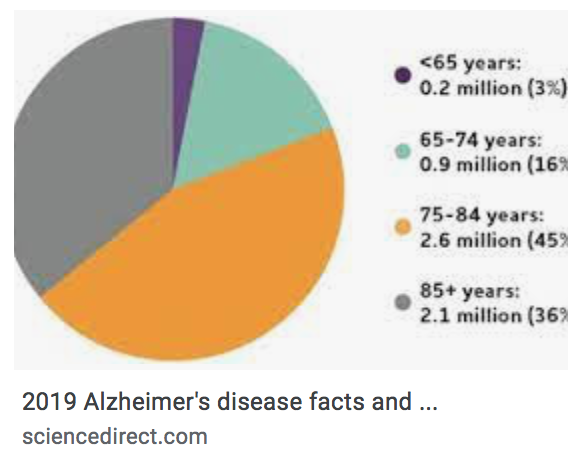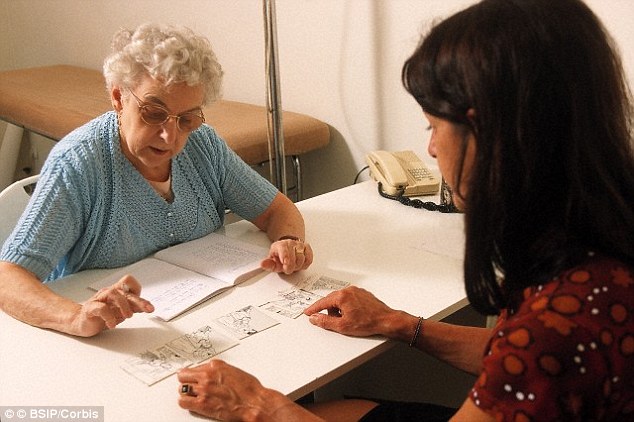This weekend I watched the powerful film, “The Father,” starring Anthony Hopkins as an 80-year-old-man with Alzheimer’s, and Olivia Coleman, as his devoted middle-aged daughter.
The film opens with a normal-appearing Hopkins in a well-appointed London flat listening to opera. But as soon as he interacts with his daughter, his confusion is on full display. In short order he becomes more and more belligerent and disoriented. “The Father” is painfully real, which reawakened my fears of developing Alzheimer’s.

A scene from “The Father,” where an agitated Anthony Hopkins, in the role of the father, argues with his daughter, played by Olivia Coleman
I was reminded of the numerous conversations I’ve had with friends my age about becoming an elderly person. It doesn’t take very long before someone blurts out, “I can’t imagine anything worse than getting Alzheimer’s.” Heads nod in response.
Fears of developing Alzheimer’s are not unfounded. It’s the sixth-leading cause of death in the United States, and the fifth-leading cause of death for people age 65 and older. This does not mean every one over 65 should panic and go into a tailspin when they can’t find their car keys, or forget the name of an acquaintance.
In order not to drive yourself crazy over forgetful behavior, it’s helpful to know the warning signs of Alzheimer’s and compare those to typical age-related changes.
Borrowing from the Alzheimer’s Association’s website, I’ve condensed the ten warning signs:
Memory Loss that Disrupts Daily Life. Example: asking for the same information over and over as compared to what’s normal: forgetting names or appointments but remembering them later.
Challenges in Planning or Solving Problems. Example: trouble following a familiar recipe or keeping track of monthly bills as compared to making occasional errors when balancing your checkbook.
Difficulty Completing Familiar Tasks. Example: trouble driving to a familiar location as compared to needing help with a new computer program.
Confusion with Time or Place. Example: losing track of dates or the passage of time as compared to getting confused about the day of the week and remembering it later.
Trouble Understanding Visual Images and Spatial Relationships. Example: difficulty reading, judging distances, which can cause problems when driving as compared to normal vision changes, related to cataracts.
New Problems with Words in Speaking or Writing. Getting lost in the conversation flow or forgetting common vocabulary names, like calling a watch a “hand clock.”
Misplacing Things and Losing the Ability to Retrace Steps. Example: Putting your eyeglasses in the refrigerator, leaving the gas burners on and not remembering these acts.
Decreased or Poor Judgment. Example: Making poor decisions like giving large amounts of money to a telemarketer and paying less attention to grooming.
Withdrawal from Work or Social Activities. Example: Difficulty keeping up with a favorite sport or forgetting how to play bridge can cause the one with Alzheimer’s to withdrawal out of embarrassment.
Changes in Mood and Personality. Example: Rapid mood swings marked by confusion, depression, or anxiety,
If your think your cognitive abilities are not within the normal range for aging, you can take an online memory test (memoryrate.com), or ask your physician to refer you to a geriatric specialist who administers Alzheimer’s tests.
To keep Alzheimer’s at bay, exercise your brain.
Do crossword puzzles; learn a foreign language; take up a musical instrument; read challenging books; or start writing the memoir you’ve been putting off.
The bad/good news is that if you or a loved one is diagnosed with early onset of Alzheimer’s, there’s ample help out there. Alzheimer’s support groups offer strategies for remembering. There are also support groups for caretakers. Numerous family members of Alzheimer’s patients have remarked that assisting the affected spouse or parent has brought them closer together.
While we can’t control our end stage, awareness goes a long way. It’s equally important to live each day with purpose and compassion so that whatever form the Grim Reaper assumes, we can feel that we’ve embraced life.






